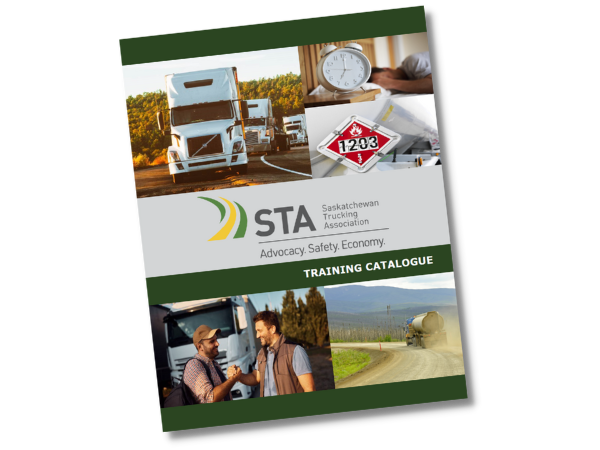
Zeroing in on Zero
Feb 27, 2024
Unless you live off the grid, then you must be hearing about the movement to create a sustainable supply chain and move towards decarbonization in our world. Some parts of Canada have been moving faster than others and this past February the BCTA and other partners put together a zeroing in on zero and low emissions conference in Vancouver. The STA wanted to provide a snapshot of the work that our brethren in the west have been working on, so we attended the event this week.

There was a full arena of equipment to inspect, climb into and ask questions about combined with a full morning of business presentations. The presenters shared what the long process has been to get the British Columbia trucking industry to the point that it is at today, and we heard that it still has a long road to travel. The provincial government has committed to incentives on capital investments in zero emission equipment to help early adopters get it on the road and find their groove. There were some very frank discussions on the energy supply chain and how, just by looking at the numbers alone, the targets are not reachable. But as with any change (and a huge change for most all carriers it will be) you need to start somewhere and talking about it is always the first step in solving a problem. There were discussions on regulations and how authorities in different jurisdictions are not including the industry when initiating zero emission rules. The talk also focused on how zero emission energy infrastructure and development have a large mountain to climb to supply enough energy in any form to get goods and services through the supply chain. We were fortunate enough to have a carrier share their first experience with zero emission equipment after ordering 10 EV day cabs. From the lead time between ordering and receiving the units to sharing the learning curve that was followed by both organization and driver, the first-hand experience was appreciated by everyone. In the end after adjustments were made, the units are performing well. It sounded like as with most recent technology, once the initial adjustments were made, then employees were much more comfortable in understanding details like range and capacity and other pros and cons of integrating the trucks into the fleet. No different than making sure you plug in a gasoline powered car in chilly weather or checking the fuel gauge or plugging in a boat or motorhome to shore power when stopped to reserve battery capacity using an EV will have the same type of daily ritual.

Another extremely popular part of the event was the opportunity to ride along in a zero emissions vehicle. There were 20 units on display with opportunities to ride along different Class 6, 7, and 8 trucks and a motorcoach. Electric power was the most prominent product available for a ride, so I chose an electric powered Freightliner Cascadia day cab. The first thing I noticed was how quiet the vehicle operated. This condition alone would be a benefit for any employee. I feel that this could become a factor that would help companies with retention. On top of that, it accelerated smoothly and fast. To round out the summit was a trade show down the center of the arena that had many different organizations that support the industry. If you had questions, this was the place to get answers. From OEMs (Original Equipment Manufacturer) to energy companies, everyone there was willing to provide expertise and assistance whether you wanted to invest in a zero emissions fleet or just reduce your carbon emissions.
To conclude I want to say I was impressed with the event. There was a reality to the summit. It was created to show the industry what is real right now today and that there is still a lot of hard work ahead for everyone to make the change to low or zero emissions. I want to thank BCTA for putting together this event and hope I will be invited to future events as they did a wonderful job. I also suggest to anyone in the trucking industry to take advantage of these events and attend as these are the best way to learn about the future of trucking. Science will keep moving the target closer to achieving decarbonization so if you happen to live off the grid or in the middle of an urban jungle remember that we all need to consider how we can help our future. Take care and drive safe.
STA Training
We have a downloadable Training Catalogue!
Don't wait - sign up for one of our courses today and take the first step towards becoming a safer, more knowledgeable driver!



